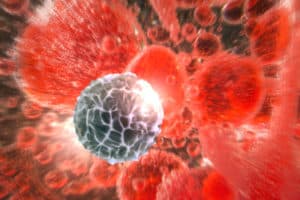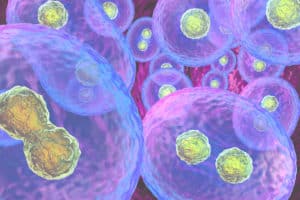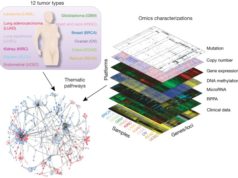 An effective and safe cancer-fighting drug has been discovered by the University of Florida College of Pharmacy. This new drug would target leukemia, lymphoma and breast and lung cancers. The drug is currently known as DT2216 and affects a protein which grows malignant cells and strengthens their resistance to treatment.
An effective and safe cancer-fighting drug has been discovered by the University of Florida College of Pharmacy. This new drug would target leukemia, lymphoma and breast and lung cancers. The drug is currently known as DT2216 and affects a protein which grows malignant cells and strengthens their resistance to treatment.
This researched was prompted by another inhibitor drug that had been denied by U.S. Food and Drug Administration. The drug was denied because it caused a drop in blood platelets, thus raising the risk of bleeding. Therefore, the U of F researchers were looking for another alternative.
The new drug is less toxic to blood platelets and works better against a variety of tumors cells aided by the BCL-XL Protein. The researchers developed the BCL-XL targeting anticancer drug with technology based on small molecules that inhibit and break down proteins that cause cancer.
The effectiveness of the study has only been seen in mathematical and mouse models, but researchers say that in those models, the drug suppressed tumor growth. Cancers affected by this drug are T-cell acute lymphoblastic leukemia and drug-resistant breast and small-cell lung cancers.
“These findings support the potential of DT2216 to be developed as a first-in-class BCL-XL-targeting antitumor agent,” said Guangrong Zheng. Zheng is a professor of medicinal chemistry at the University of Florida College of Pharmacy. He led this investigation with the professor of pharmacodynamics, Daohong Zhou.
“We were fascinated by our findings because this was a first-of-its-kind study presents a novel strategy to reduce the toxicity of an anti-tumor drug using PROTAC technology,” said Zhou.
Before clinical trials can begin in people, some additional tests must be done.
 This study is supported by other members of the University of Florida, the University of Texas M.D. Anderson Cancer Center, Columbia University, Children’s Hospital Los Angeles and the University of Texas at San Antonio. The researchers have experience in cell and molecular biology, hematology, medicinal chemistry and bioinformatics.
This study is supported by other members of the University of Florida, the University of Texas M.D. Anderson Cancer Center, Columbia University, Children’s Hospital Los Angeles and the University of Texas at San Antonio. The researchers have experience in cell and molecular biology, hematology, medicinal chemistry and bioinformatics.


























